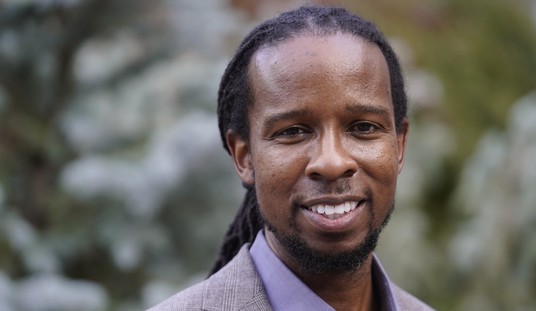Three years ago, John Mackey angered many of his Whole Foods consumer base by equating ObamaCare with socialism and arguing that health-care reform should use capitalism as a lever for real improvement. Now, however, the CEO and co-founder of the health-food chain wants to clarify his earlier comments. Technically, ObamaCare is actually an example of another kind of government altogether:
What he doesn’t think is right is President Obama’s health overhaul and the new costs that coverage requirements will place on businesses.
When Inskeep asks him if he still thinks the health law is a form of socialism, as he’s said before, Mackey responds:
“Technically speaking, it’s more like fascism. Socialism is where the government owns the means of production. In fascism, the government doesn’t own the means of production, but they do control it — and that’s what’s happening with our health care programs and these reforms.”
The Hill has a helpful reminder of the short history of fascism:
The term “fascism” was first used to describe the right-wing regime of Italian leader Benito Mussolini, and was later applied to the Nazis and the authoritarian leadership of Francisco Franco in Spain.
I’m sure that the Obama administration and its supporters appreciate Mackey’s clarification. Like most business owners, Mackey’s concern goes beyond the costs of the bill, but also to the ambiguity of those costs. The Miami Herald reported yesterday that House and Senate committees have begun hearings on both costs and ambiguity, and that no one can accurately determine the impact ObamaCare will have on their businesses:
But the Senate select committee also heard concerns from employers about how coverage requirements and penalties in the law could drive up costs for businesses. The concerns center, at least in part, on small businesses that have struggled in recent years with increasing health-insurance premiums.
“I’ve got to tell you that I’m thoroughly confused,’’ said Kim Williams, president of Marpan Supply Co., a Tallahassee recycling business that has 74 employees. “I don’t know what it’s going to cost me next year.”
As for ambiguities, even HHS is having trouble figuring out what it’s supposed to do. This week, Kathleen Sebelius put off a deadline for determining the readiness of states to move forward with their exchanges, despite having no authority in the PPACA to do so:
The White House says it will give states more time to comply with the new health care law after finding that many states lag in setting up markets where millions of Americans are expected to buy subsidized private health insurance.
Under the law, the secretary of health and human services was supposed to determine “on or before Jan. 1, 2013,” whether states were prepared to operate the online markets, known as insurance exchanges.
But the secretary, Kathleen Sebelius, working with the White House, said she would waive or extend the deadline for any states that expressed interest in creating their own exchanges or regulating insurance sold through a federal exchange.
Only 17 states have received “conditional approval,” a status also not found in the law, according to a former Sebelius adviser:
Jay Angoff, a former administration official who served as a senior adviser to Ms. Sebelius, said: “There is no such thing as ‘conditional approval’ in the statute, nor is there a ‘partnership exchange’ in the statute. The federal government has the ultimate responsibility for making sure that an exchange is established in every state. So if a state that receives conditional approval is unable to do all the things it needs to do to establish an exchange by Oct. 1 — which is likely — then the federal government will run the exchange in that state.”
That will mean higher costs for ObamaCare than projected, and the potential for disruption of subsidies intended to cushion the impact of the PPACA on insurance premiums for working- and middle-class households. In truth, nearly everything about ObamaCare is immersed in ambiguities and uncertainty on costs and regulation after almost three years — and we only have less than a year to go before full implementation.








Join the conversation as a VIP Member